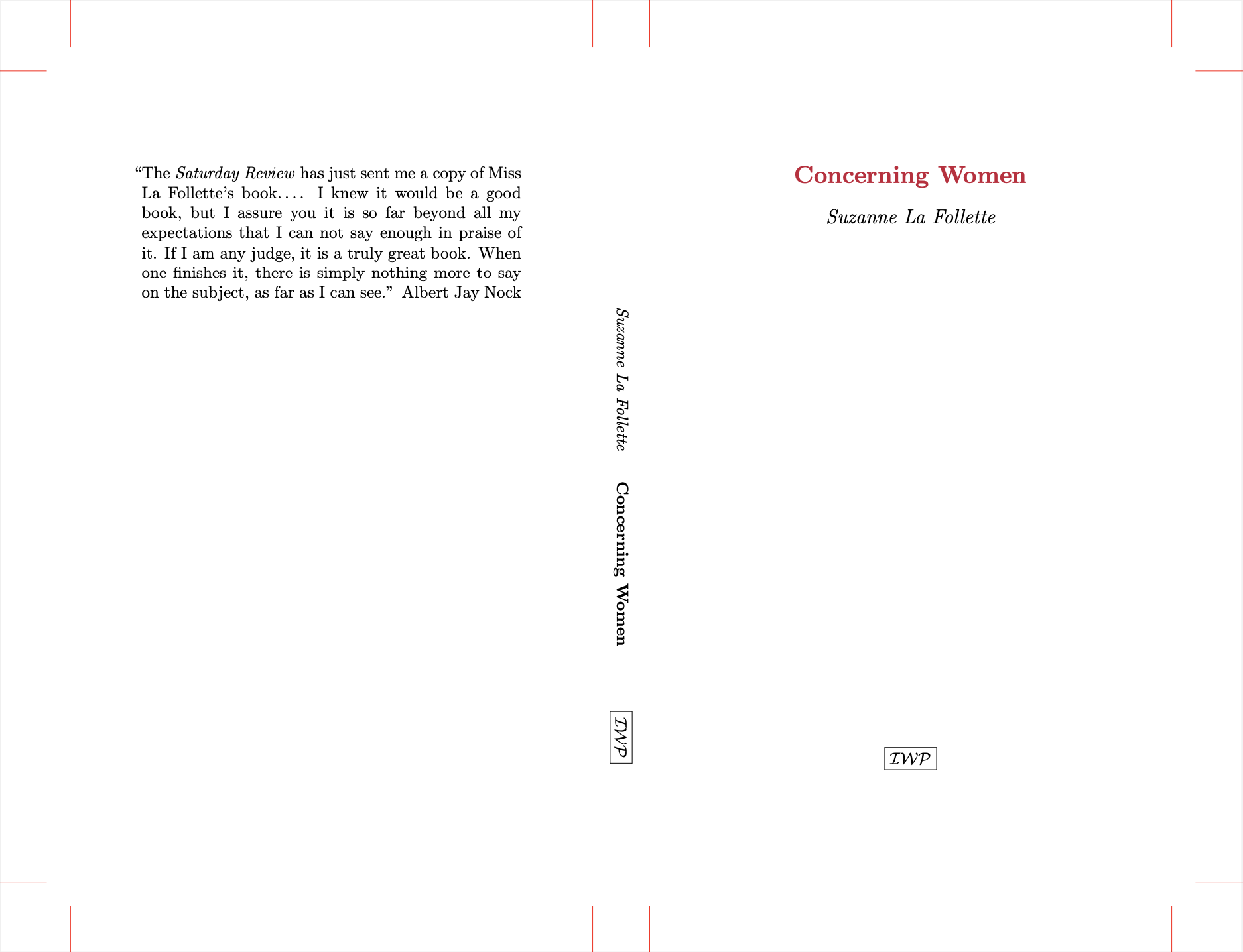Socrates in Prison (ca. 1800) by Josef Abel, Albertina Museum, Vienna.

Socrates in Prison (ca. 1800) by Josef Abel, Albertina Museum, Vienna.

The Duel Between Eteocles and Polynices (ca. 1820) by Bartolomeo Pinelli, Albertina Museum, Vienna.
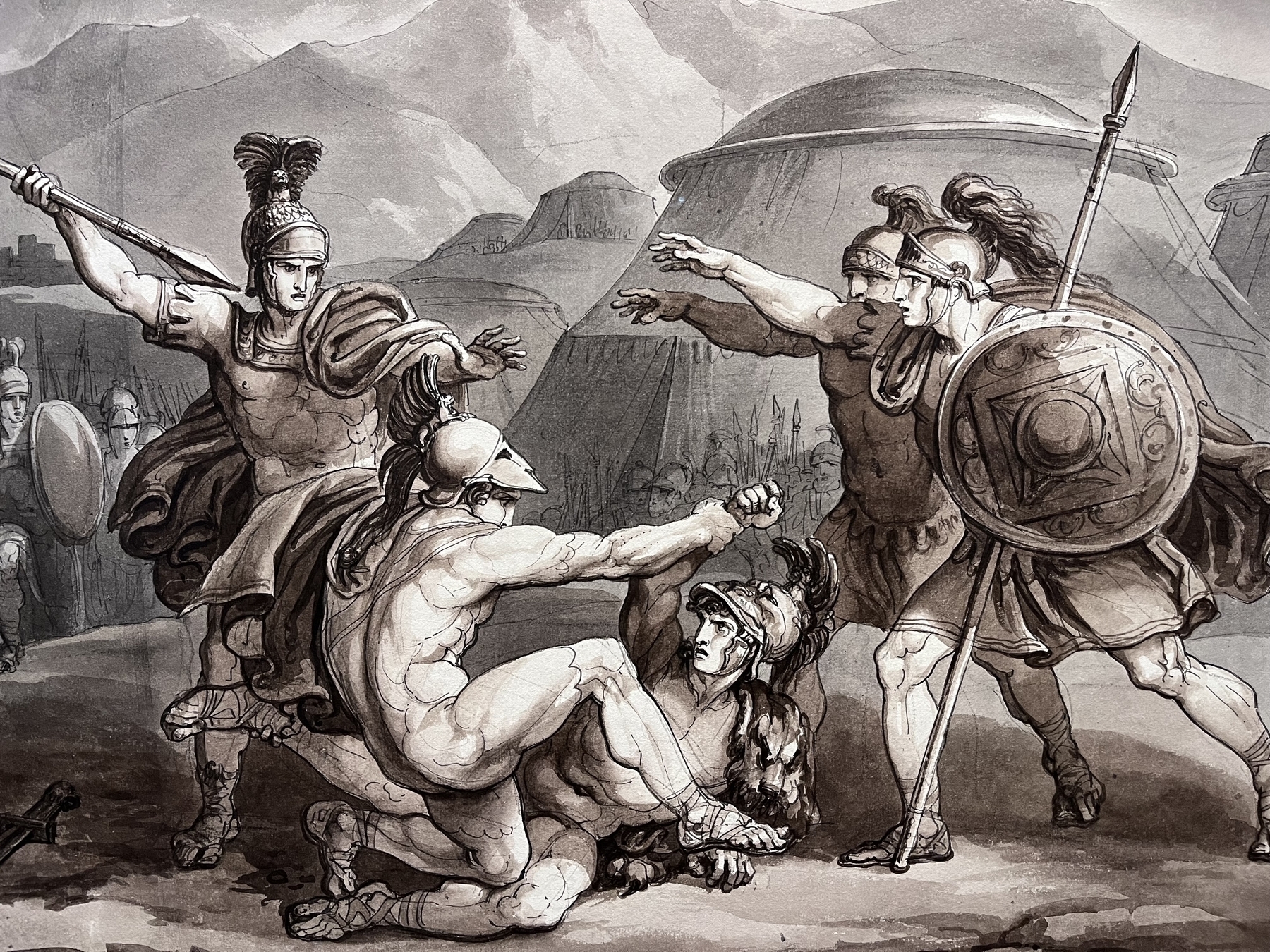
Oedipus and Antigone Leaving Thebes (1797) by Joseph Anton Koch, Albertina Museum, Vienna.
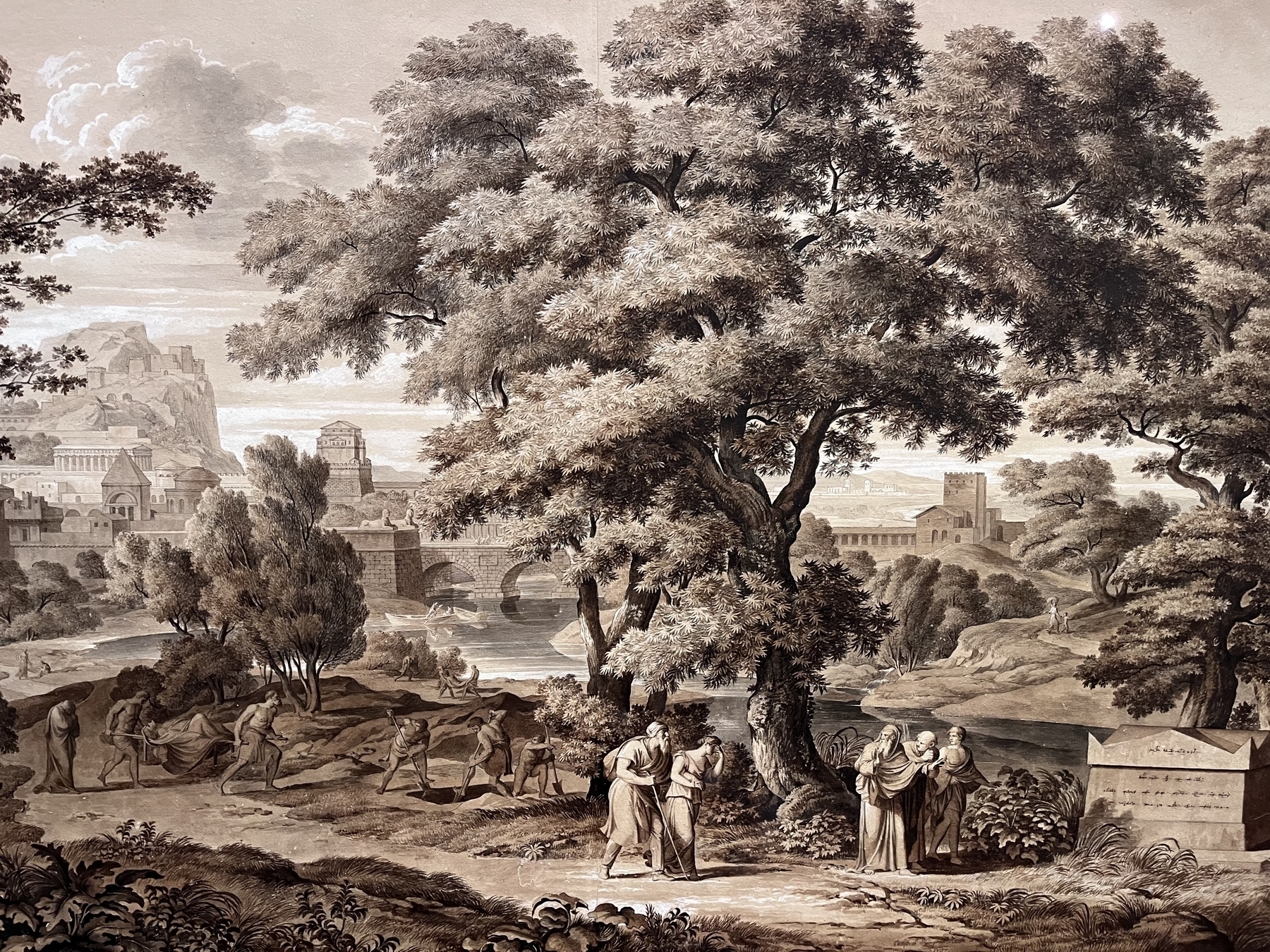
Clio, Albertina Museum, Vienna.
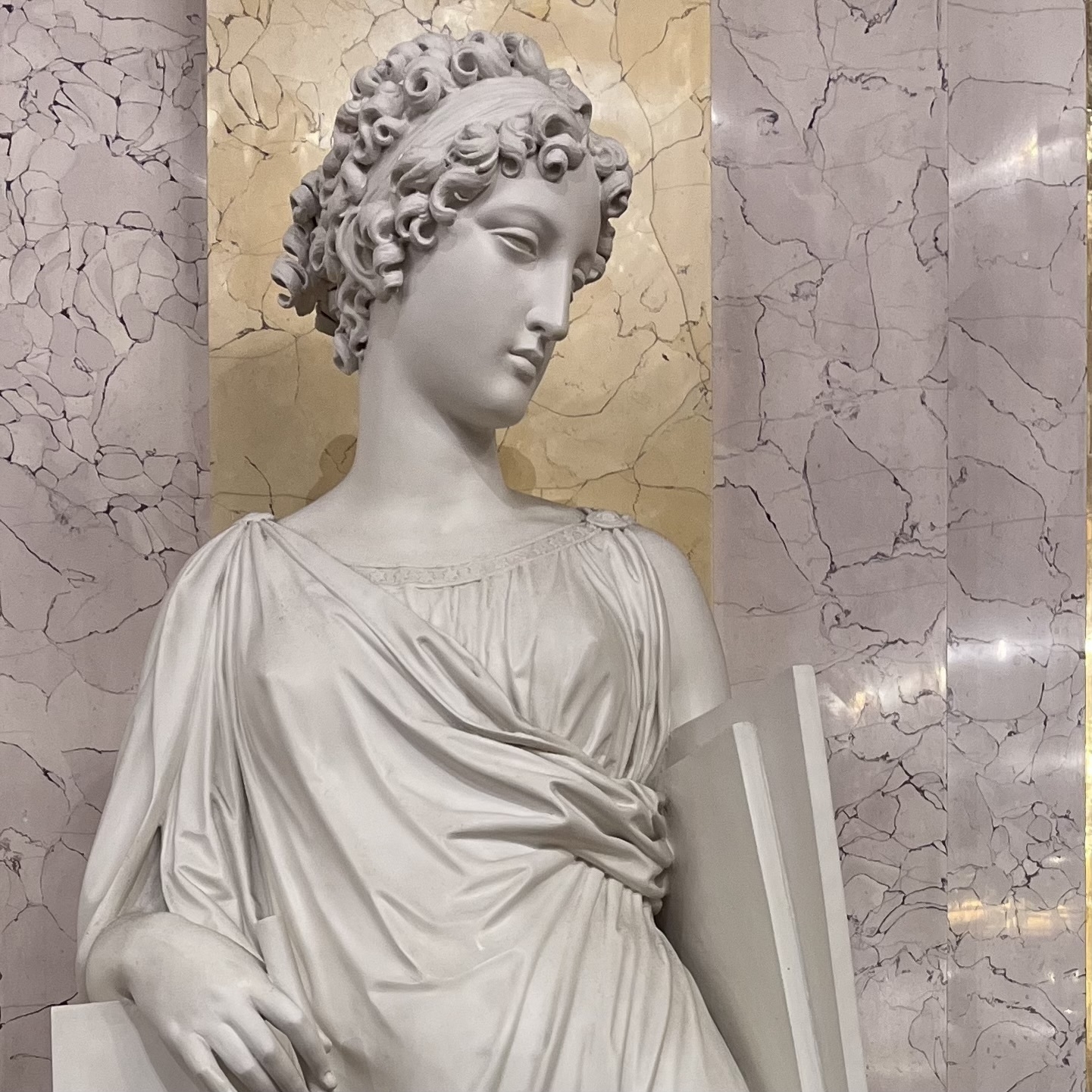
New at IWP Books: Under Dispute (1924) by Agnes Repplier.

View from the BYU Jerusalem Center, Yesterday.

Aldous Huxley on Montaigne (From Collected Essays):
The perfection of any artistic form is rarely achieved by its first inventor. To this rule Montaigne is the great and marvelous exception. By the time he had written his way into the Third Book, he had reached the limits of his newly discovered art. “What are these essays,” he had asked at the beginning of his career, “but grotesque bodies pieced together of different members, without any definite shape, without any order, coherence, or proportion, except they be accidental.” But a few years later the patchwork grotesques had turned into living organisms, into multiform hybrids like those beautiful monsters of the old mythologies, the mermaids, the man-headed bulls with wings, the centaurs, the Anubises, the seraphim – impossibilities compounded of incompatibles, but compounded from within, by a process akin to growth, so that the human trunk seems to spring quite naturally from between the horse’s shoulders, the fish modulates into the full-breasted Siren as easily and inevitably as a musical theme modulates from one key to another. Free association artistically controlled – this is the paradoxical secret of Montaigne’s best essays. One damned thing after another – but in a sequence that in some almost miraculous way develops a central theme and relates it to the rest of human experience. And how beautifully Montaigne combines the generalization with the anecdote, the homily with the autobiographical reminiscence! How skilfully he makes use of the concrete particular, the chose vue, to express some universal truth, and to express it more powerfully and penetratingly than it can be expressed by even the most oracular of the dealers in generalities! Here, for example, is what a great oracle, Dr. Johnson, has to say about the human situation and the uses of adversity. “Affliction is inseparable from our present state; it adheres to all the inhabitants of this world, in different proportions indeed, but with an allotment which seems very little regulated by our own conduct. It has been the boast of some swelling moralists that every man’s fortune was in his own power, that prudence supplied the place of all other divinities, and that happiness is the unfailing consequence of virtue. But, surely, the quiver of Omnipotence is stored with arrows, against which the shield of human virtue, however adamantine it has been boasted, is held up in vain; we do not always suffer by our crimes, we are not always protected by our innocence… Nothing confers so much ability to resist the temptations that perpetually surround us, as an habitual consideration of the shortness of life, and the uncertainty of those pleasures that solicit our pursuit; and this consideration can be inculcated only by affliction.” This is altogether admirable; but there are other and, I would say, better ways of approaching the subject. “J’ay veu en mon temps cent artisans, cent laboureurs, plus sages et plus heureux que des Recteurs de l’Universite.” (I have seen in my time hundreds of artisans and laborers, wiser and happier than university presidents.) Again, “Look at poor working people sitting on the ground with drooping heads after their day’s toil. They know neither Aristotle nor Cato, neither example nor precept; and yet from them Nature draws effects of constancy and patience purer and more unconquerable than any of those we study so curiously in the schools.” Add to one touch of nature one touch of irony, and you have a comment on life more profound, in spite of its casualness, its seeming levity, than the most eloquent rumblings of the oracles. “It is not our follies that make me laugh,” says Montaigne, “it is our sapiences.” And why should our sapiences provoke a wise man to laughter? Among other reasons, because the professional sages tend to express themselves in a language of highest abstraction and widest generality – a language that, for all its gnomic solemnity is apt, in a tight corner, to reveal itself as ludicrously inappropriate to the facts of life as it is really and tragically lived.
From Albert O. Hirschman’s (1971) A Bias for Hope:
Most social scientists conceive it as their exclusive task to discover and stress regularities, stable relationships, and uniform sequences. This is obviously an essential search, one in which no thinking person can refrain from participating. But in the social sciences there is a special room for the opposite type of endeavor: to underline the multiplicity and creative disorder of the human adventure, to bring out the uniqueness of a certain occurrence, and to perceive an entirely new way of turning a historical corner.
The coexistence as equals of the two types of activities just outlined is characteristic of the social sciences. In the natural sciences the unexplained phenomenon and alertness to it are also of the greatest importance, but only as a means to an end, as the beginning of a new search for an improved general theory which would subsume the odd fact, thus overcoming its recalcitrance and destroying it in its uniqueness. In the social sciences, on the other hand, it is not at all clear which is means and which is end: true, most social scientists behave in this respect as if they were natural scientists; but they would be more surprised than the latter and, above all, considerably distraught if their search for general laws were crowned with total success. Quite possibly, then, all the successive theories and models in the social sciences, and the immense efforts that go into them, are motivated by the noble, if unconscious, desire to demonstrate the irreducibility of the social world to general laws! In no other way would it have been possible to affirm so conclusively the social world as the realm of freedom and creativity. But by now there surely is something to be said for pursuing this theme in a less roundabout fashion.
The importance of granting equal rights of citizenship in social science to the search for general laws and to the search for uniqueness appears particularly in the analysis of social change. One way of dealing with this phenomenon is to look for “laws of change” on the basis of our understanding of past historical sequences. But the possibility of encountering genuine novelty can never be ruled out – this is indeed one of the principal lessons of the past itself. And there is a special justification for the direct search for novelty, creativity, and uniqueness: without these attributes change, at least large-scale social change, may not be possible at all. For, in the first place, the powerful social forces opposed to change will be quite proficient at blocking off those paths of change that have already been trod. Secondly, revolutionaries or radical reformers are unlikely to generate the extraordinary social energy they need to achieve change unless they are exhilaratingly conscious of writing an entirely new page of human history.
I have of course not been disinterested in claiming equal rights for an approach to the social world that would stress the unique rather than the general, the unexpected rather than the expected, and the possible rather than the probable. For the fundamental bent of my writings has been to widen the limits of what is or is perceived to be possible, be it at the cost of lowering our ability, real or imaginary, to discern the probable.
Rereading “Clio and the Doctors” by Jacques Barzun.
New at IWP Books: Points of Friction (1920) by Agnes Repplier.
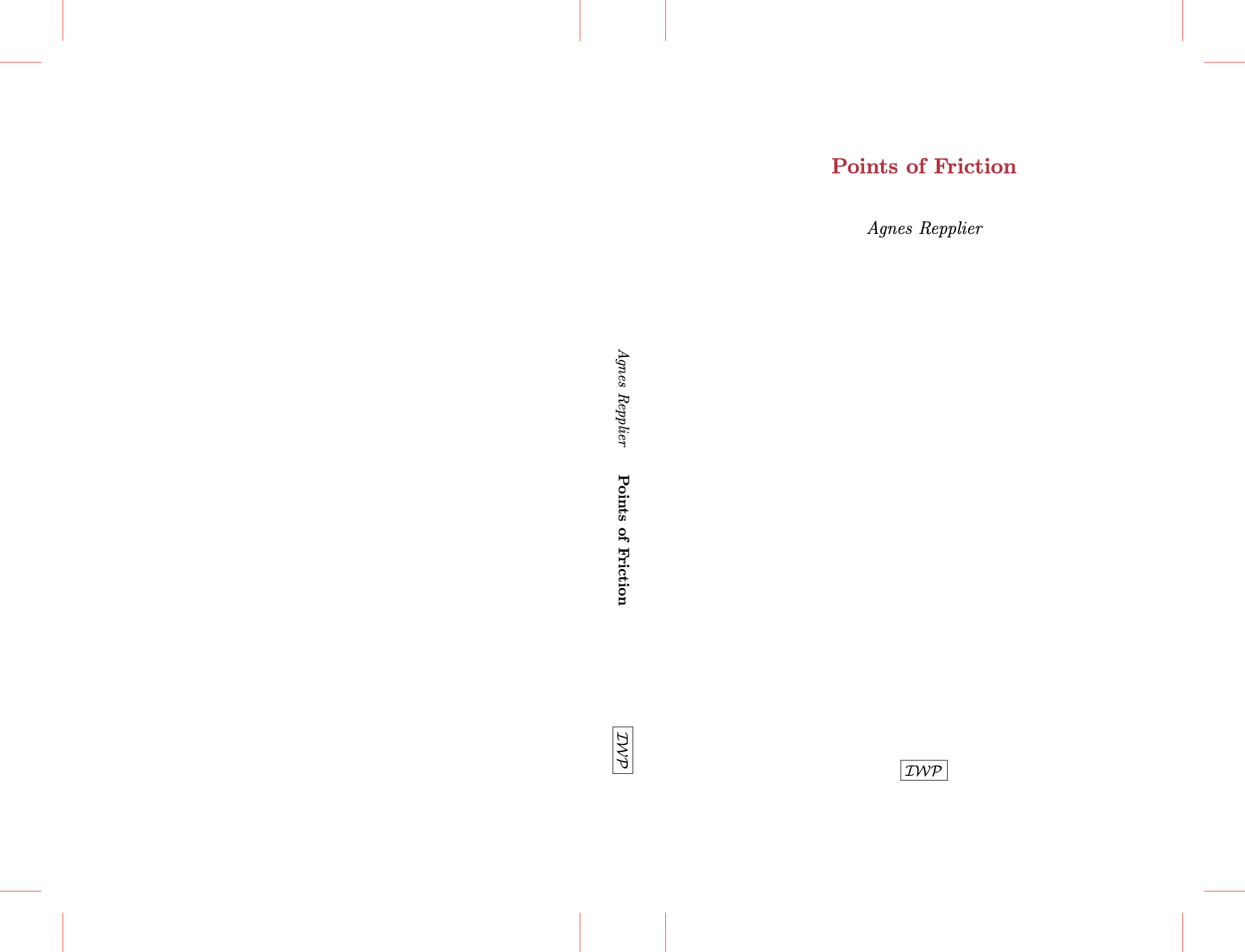
New at IWP Books: Counter-Currents (1916) by Agnes Repplier.
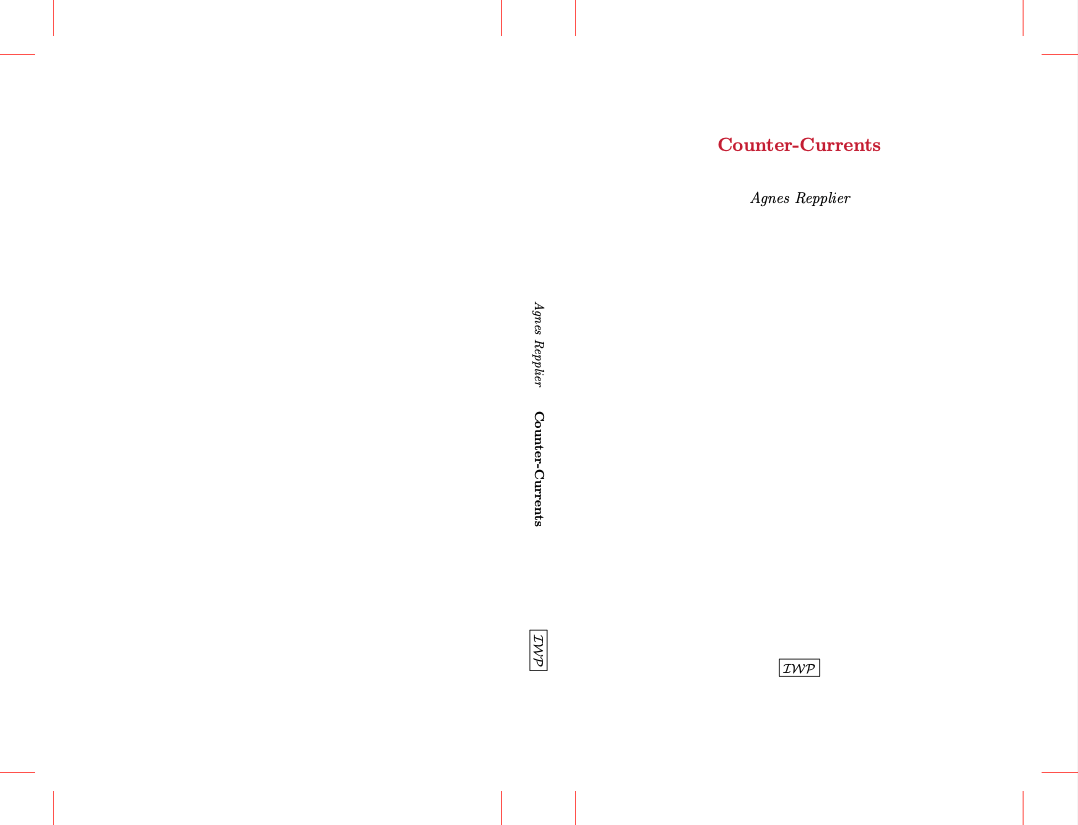
New at IWP Books: The Tempo of Modern Life (1931) by James Truslow Adams. Begin Here!
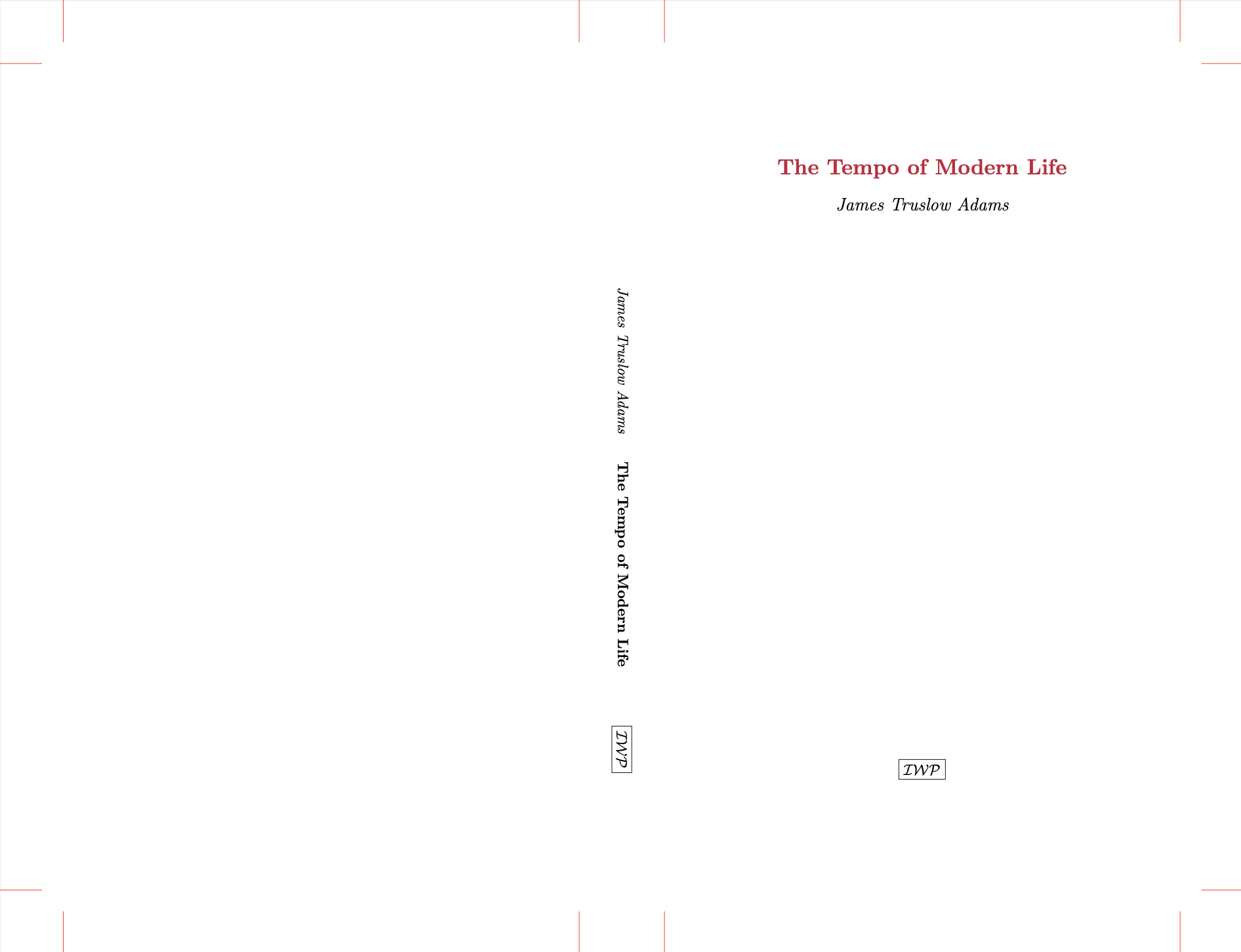
Philadelphia, Patricians & Philistines, 1900–1950 by John Lukacs. Chapter on Agnes Repplier.
New at IWP Books: Our Business Civilization (1929) by James Truslow Adams.
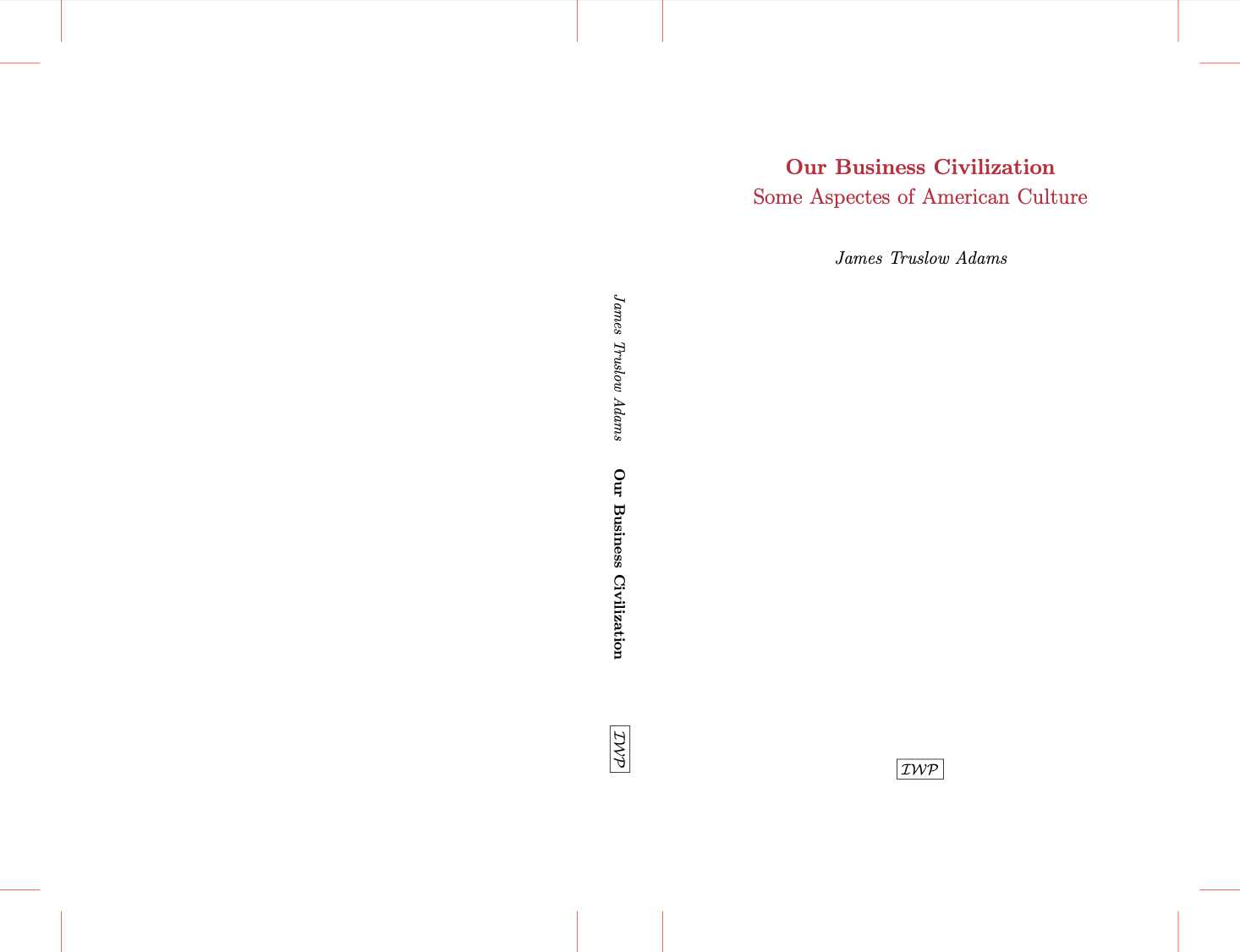
New at IWP Books: Meditations in Wall Street, 1940, Anonymous, With an Introduction by Albert Jay Nock.
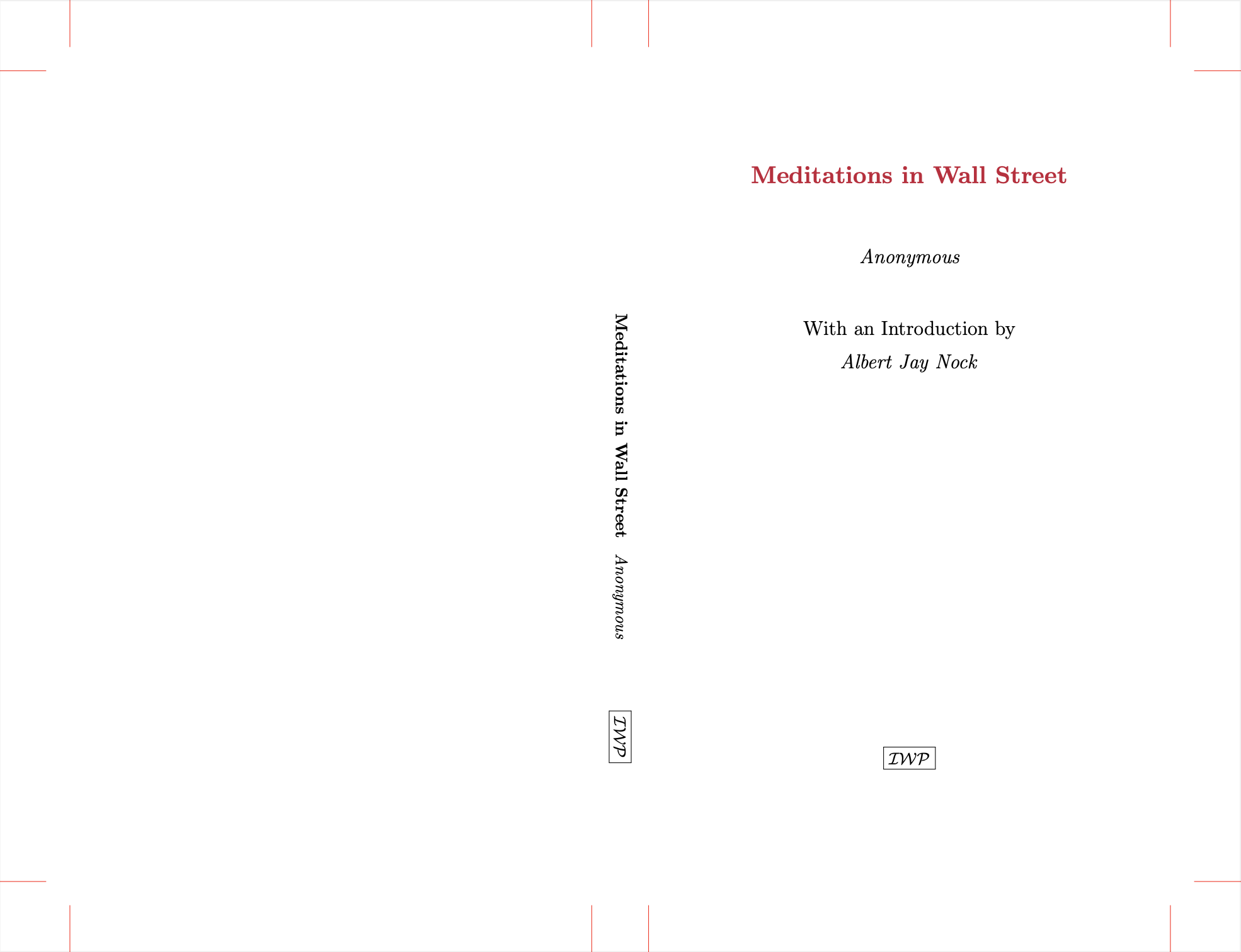
New at IWP Articles: “The Tempo of Modern Life” (1931) by James Truslow Adams.
New at IWP Articles: “Diminishing Returns in Modern Life” (1931) by James Truslow Adams.
New at IWP Articles: “Is Science a Blind Alley?” (1931) by James Truslow Adams.
New at IWP Articles: “Sweetness and Light — Sixty Years After” (1931) by James Truslow Adams.
From Dialogues of Alfred North Whitehead:
“One of the happiest times that I know of in the history of mankind,” said he, “was the thirty years, roughly, from 1880 to 1910. I am not suggesting that there were not a great many things which needed changing; but we intended to change them and had set about doing so. For people like us, moderately comfortable, the conditions were ideal — not too much money, engrossing work to be done, and a sense of purpose and progress in the world.”
New at IWP Books: Science, Liberty and Peace (1947) by Aldous Huxley.
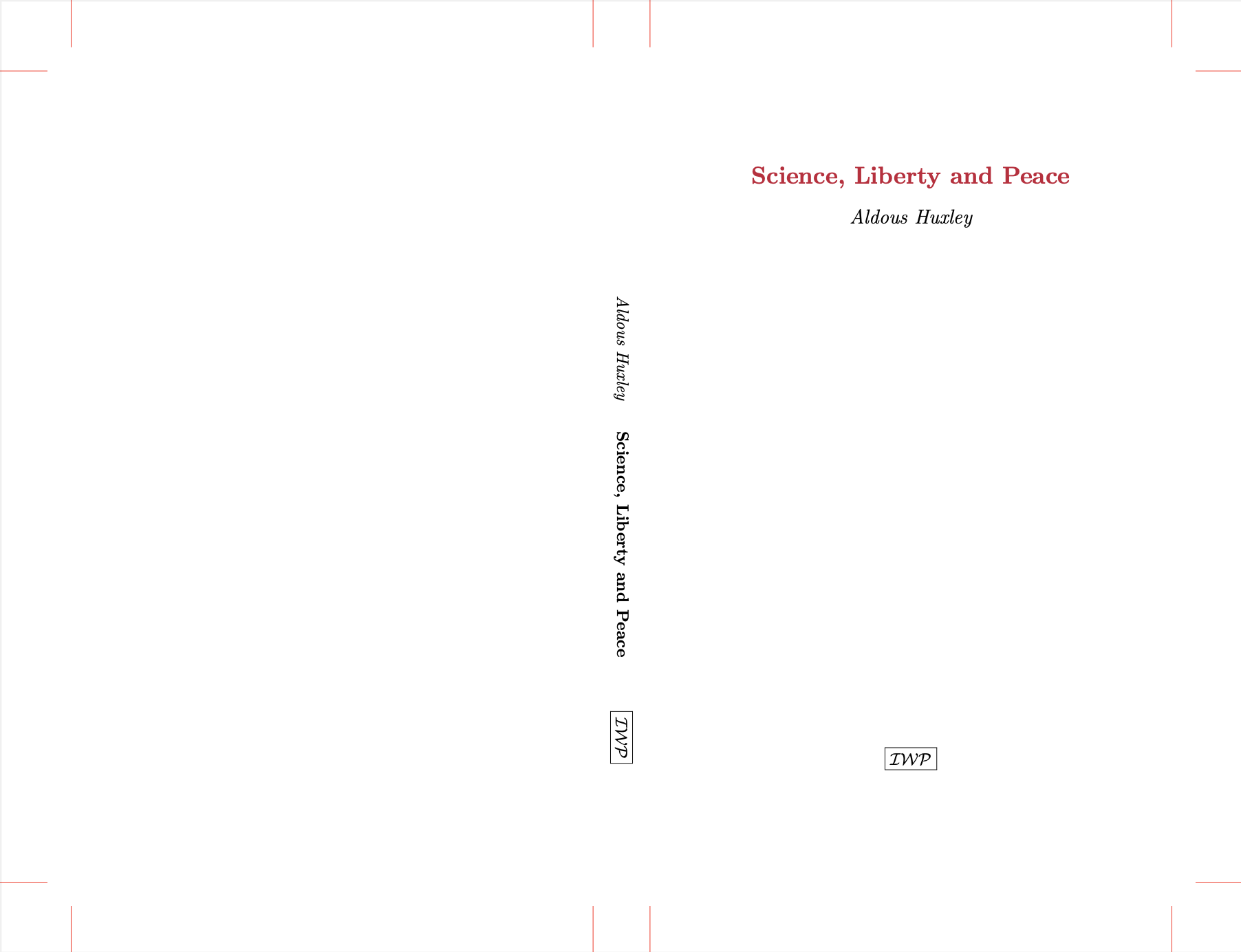
From Concerning Women (1926) by Suzanne La Follette:
The dominant spirit among us is not only not hospitable to the idea of freedom; it is openly inimical to the idea. The United States is the richest and most powerful country in the world. It is in the midst of the most interesting experiment ever seen in the simplification of human life. It is undertaking to prove that human beings can live a generally satisfactory life without the exercise of the reflective intellect, without ideas, without ideals, and in a proper use of the word without emotions, so long as they may see the prospect of a moderate well-being, and so long as they are kept powerfully under the spell of a great number of mechanical devices for the enhancement of comfort, convenience and pleasure. This experiment is so universal and so preoccupying that while it is going on there would seem to be no chance to get any consideration for so unrelated a matter as freedom. Hence the only current notion of freedom is freedom to live and behave as the majority live and behave and to desire what the majority desire; and notions which diverge from this have not been under stronger suspicion and disapproval since the eighteenth century than they are in this country today. Not that any one, probably, fears any degree of liberty for himself, but every one has a nervous horror of too much liberty for others. Most people no doubt feel that they themselves would know exactly what to do with freedom and therefore might be safely trusted with any measure of it; it is the possible social effect of other people’s liberty that they dread. No idea, probably, is more distrusted and feared among us at the present time than that of freedom for someone else.
From Concerning Women (1926) by Suzanne La Follette:
It is not the fear of want alone which demoralizes and corrupts. In a society where the greatest respect is paid to those who live in idleness through legalized theft; where men of genius may be treated like lackeys by those whose only claim to superiority is their command of wealth; where industry and ability yield smaller returns than flattery and servility; in such a society there is little to encourage honesty and independence of spirit. So long as honour is paid to those who live by other people’s labour, in proportion to their power of commanding it, so long will praise of honesty, industry, and thrift savour of hypocrisy, and so long will the mass of people be under small temptation to cultivate these virtues; and so long, also, will the moralists who seek to inculcate them be open to the same suspicion of insincerity as are those bankers who stand to profit substantially by the thrift they preach among depositors. There is something grimly amusing in the complaints so frequently heard from those who live in ease, about the shiftlessness of the working classes and their dishonest workmanship; complaints which are well founded, perhaps, but do not take into account the slight incentive that is furnished by the knowledge that the profits of industry and honest workmanship will be diverted into other pockets than those of the workers. If labour takes every opportunity of giving as little as it can for as much as it can get, one must remember that it but follows the example set by the owning classes, an example that has yielded them rich returns both in wealth and in the esteem of their fellow-men. Under a free economic system no such demoralizing example would exist. The material rewards of honesty, industry, and thrift would accrue to those who practised these virtues; and since there would be no opportunity to gain esteem through the appropriation of other people’s labour, those who wished to enjoy it would be forced to depend on more worthy means, such as ability, integrity, and uprightness in their dealings with other people.
New at IWP Books: Concerning Women (1926) by Suzanne La Follette.
Soon at IWP Books: Concerning Women (1926) by Suzanne La Follette.
